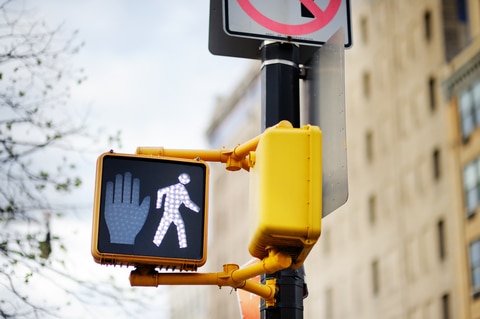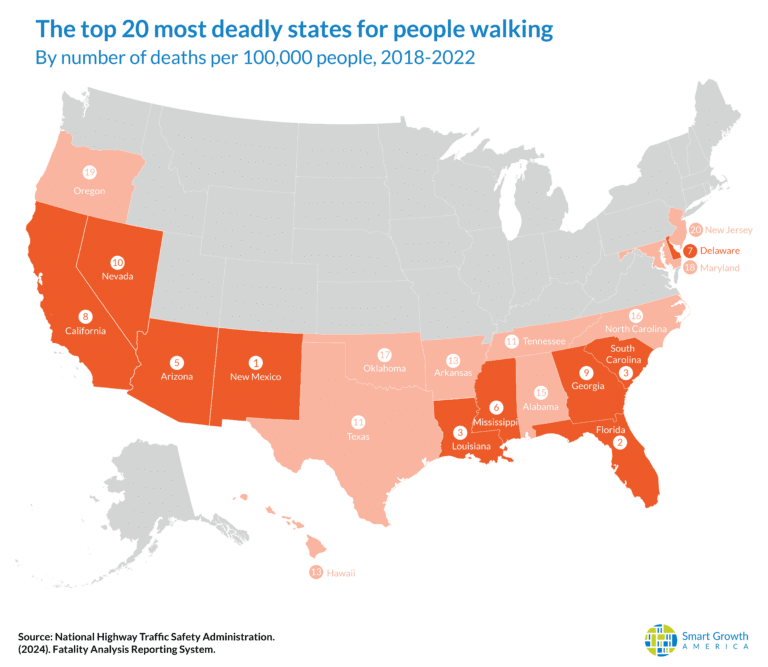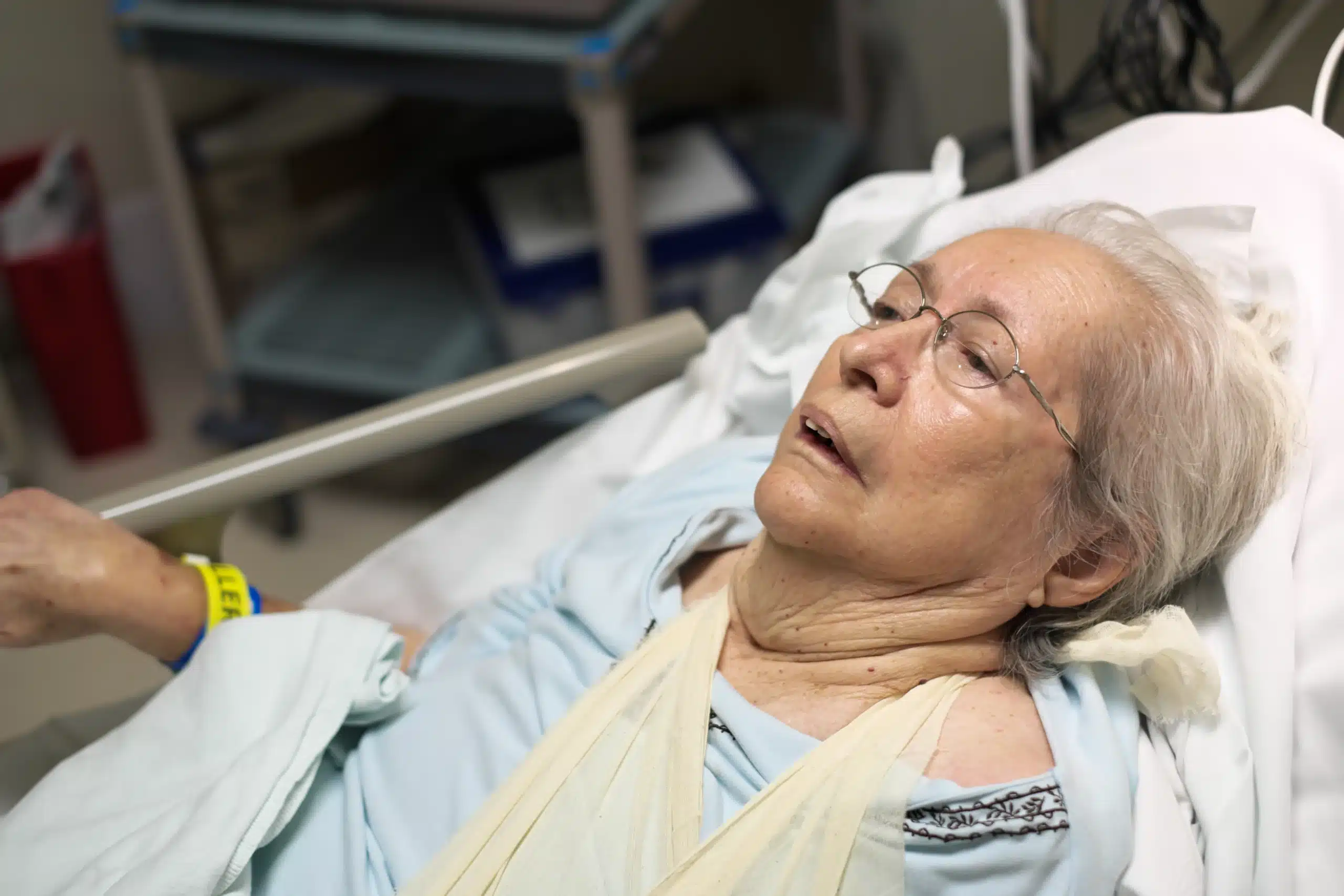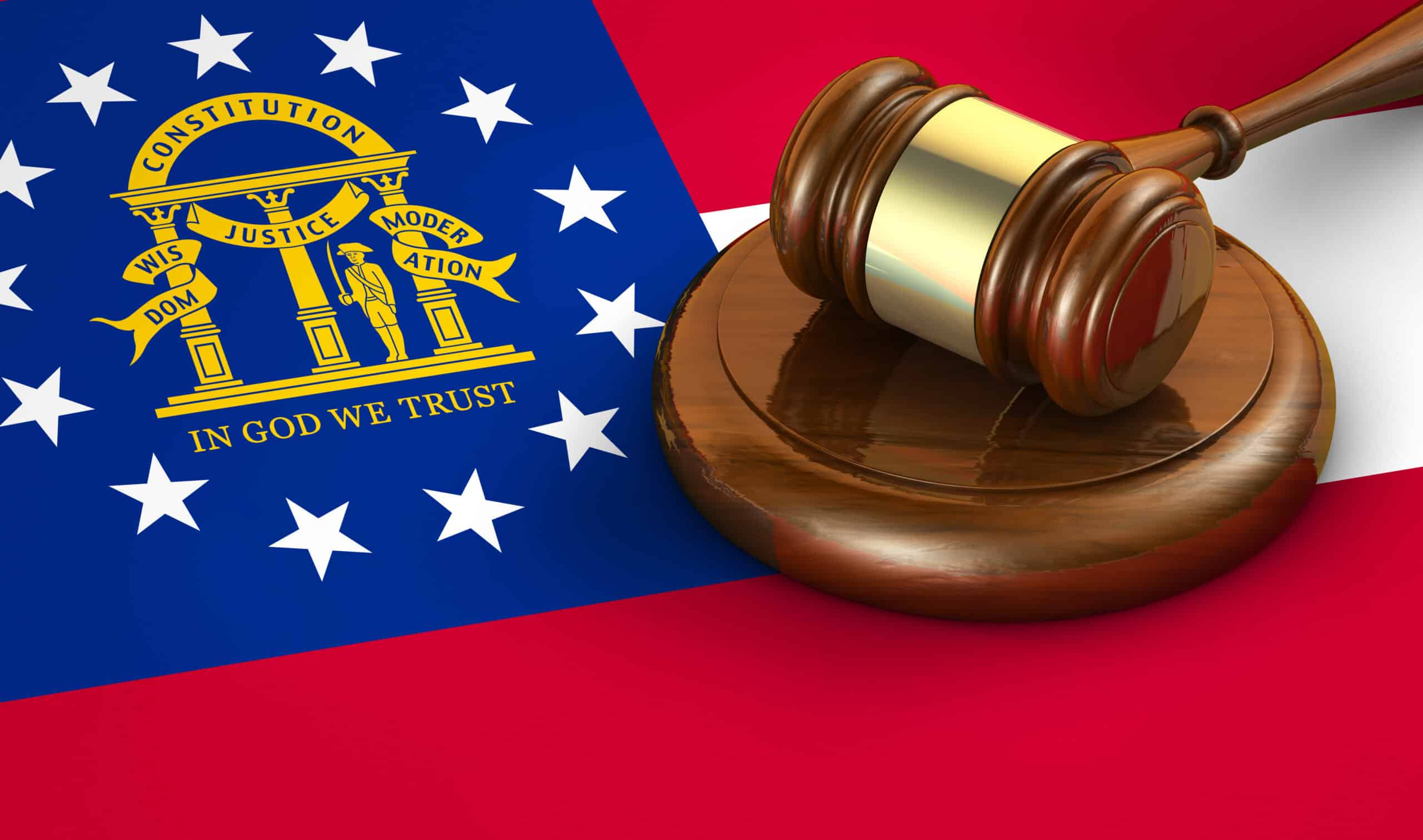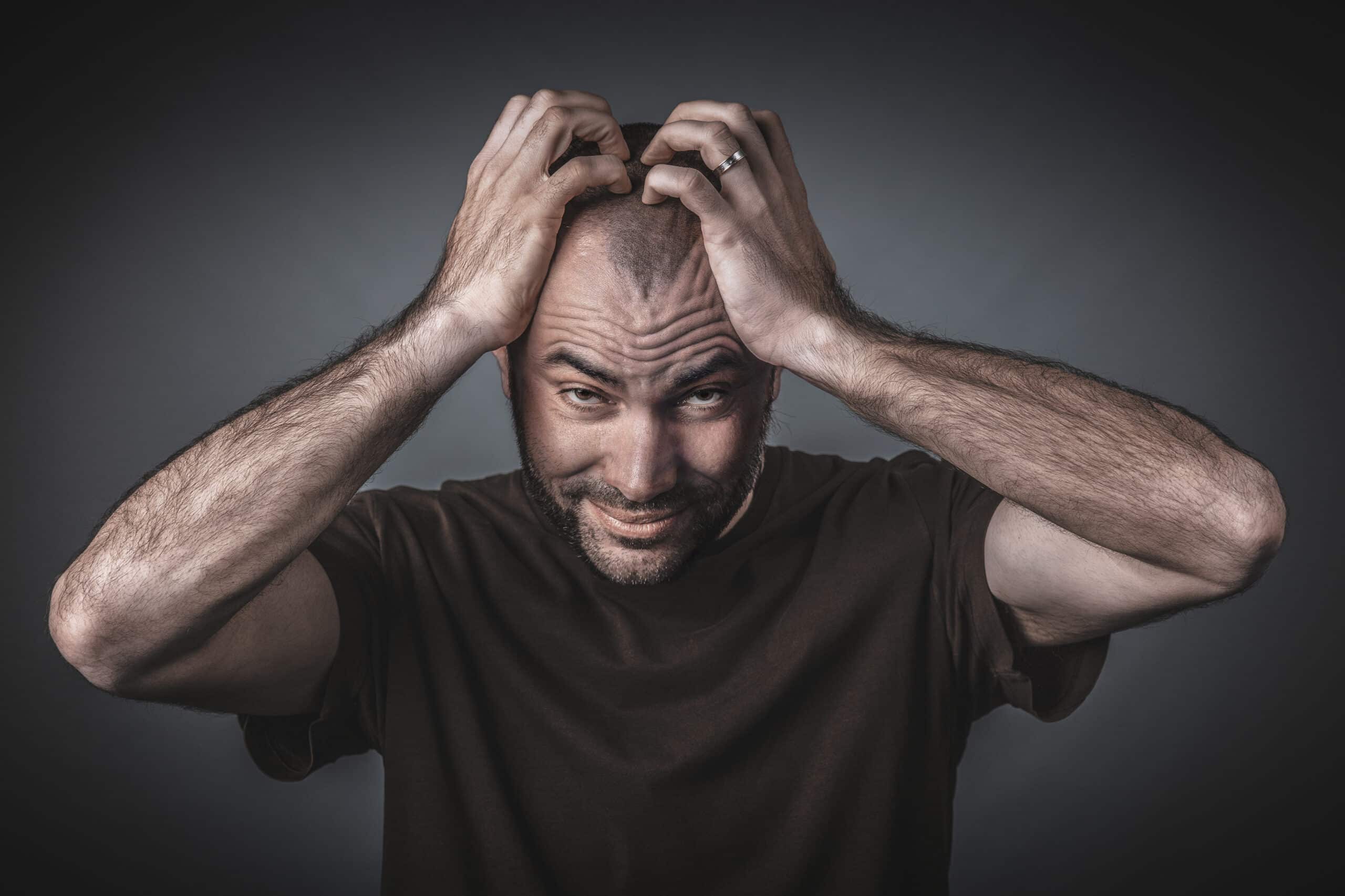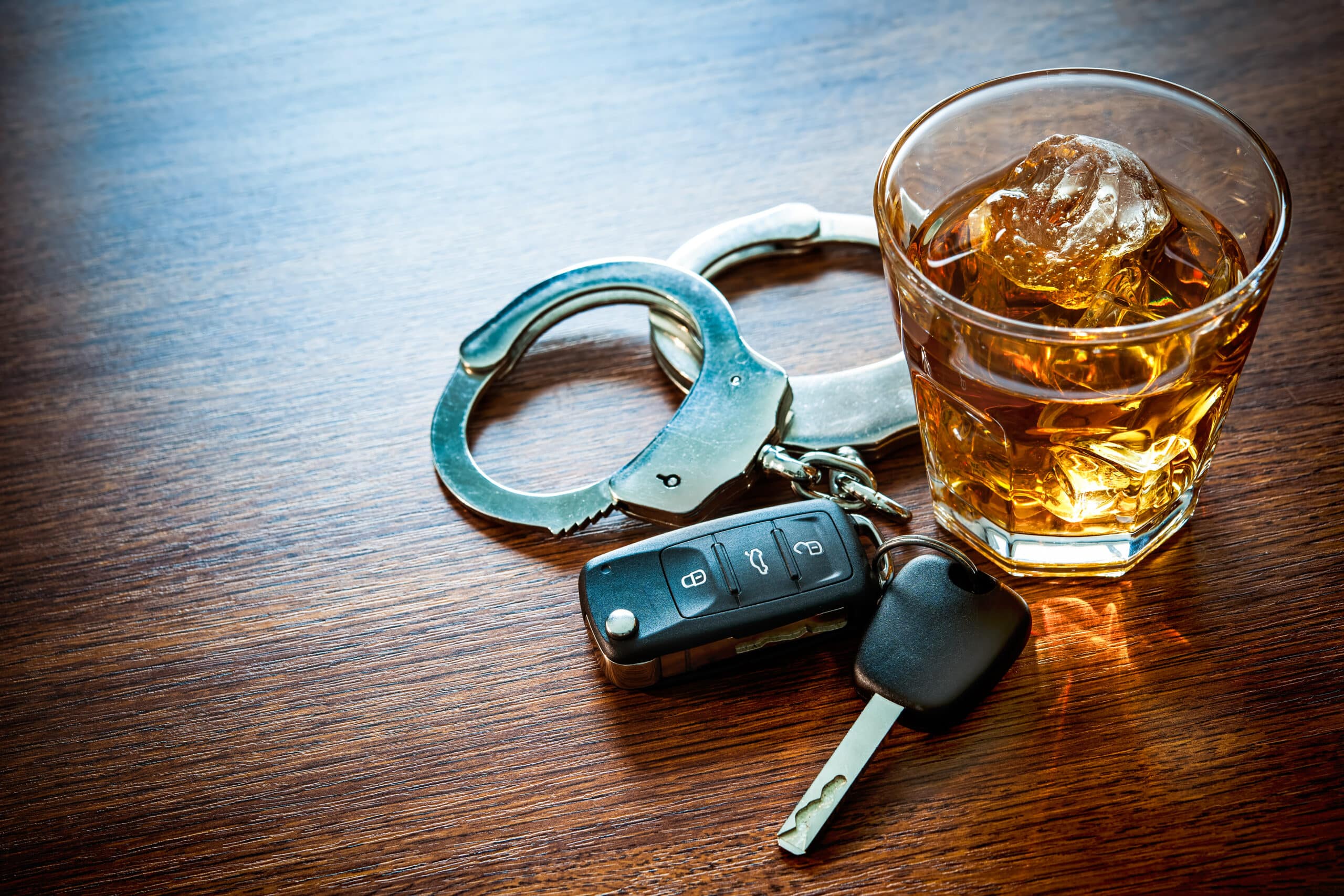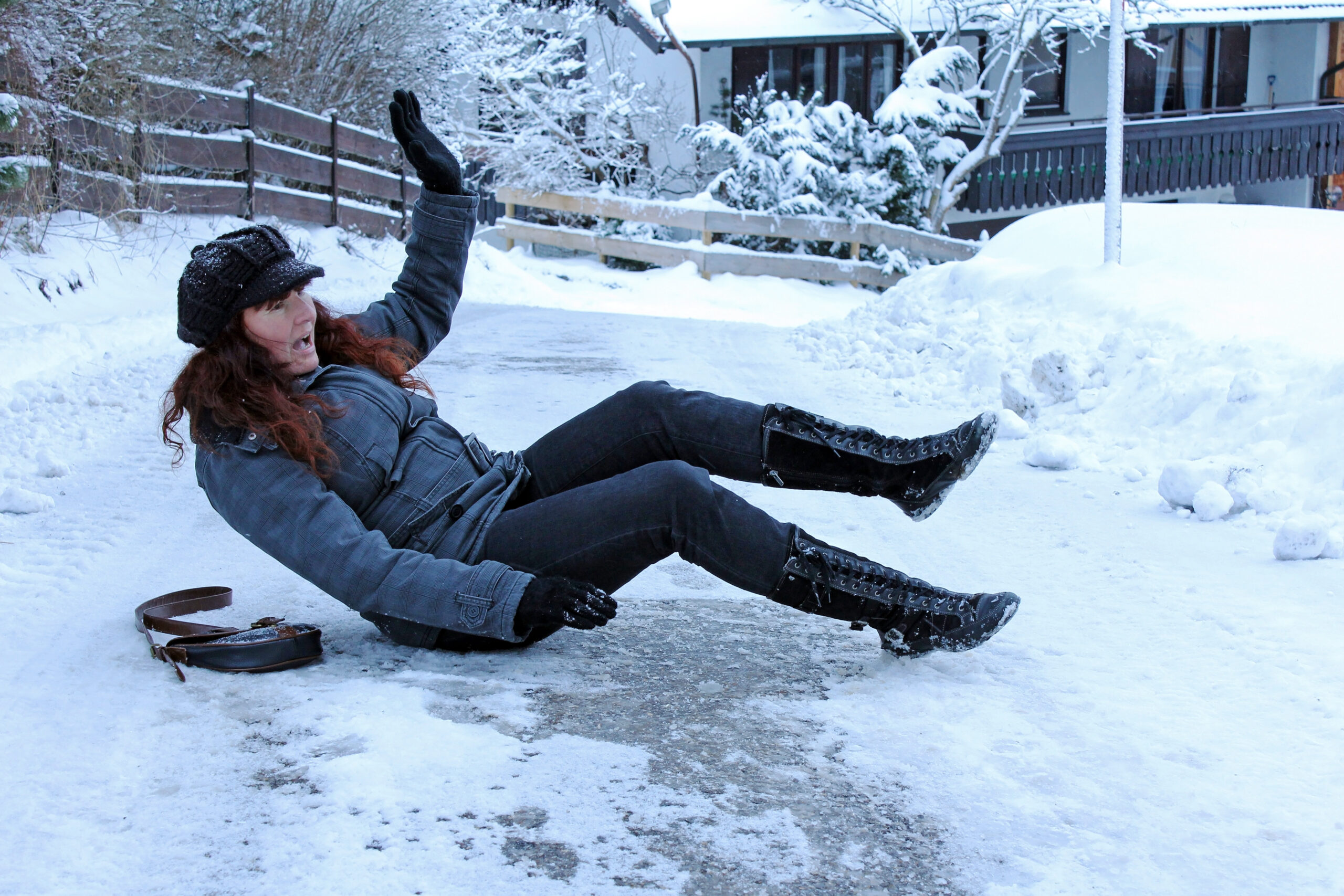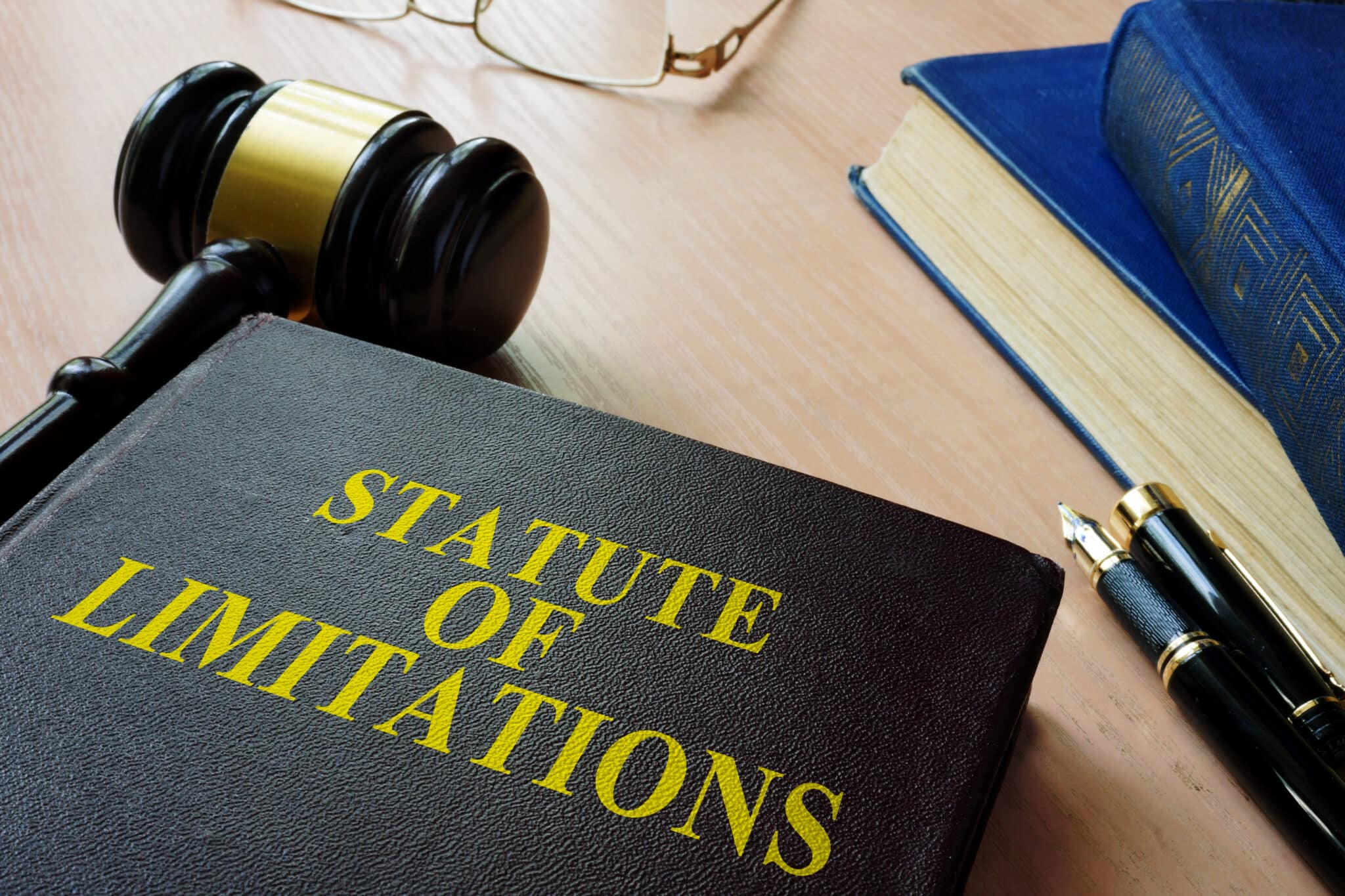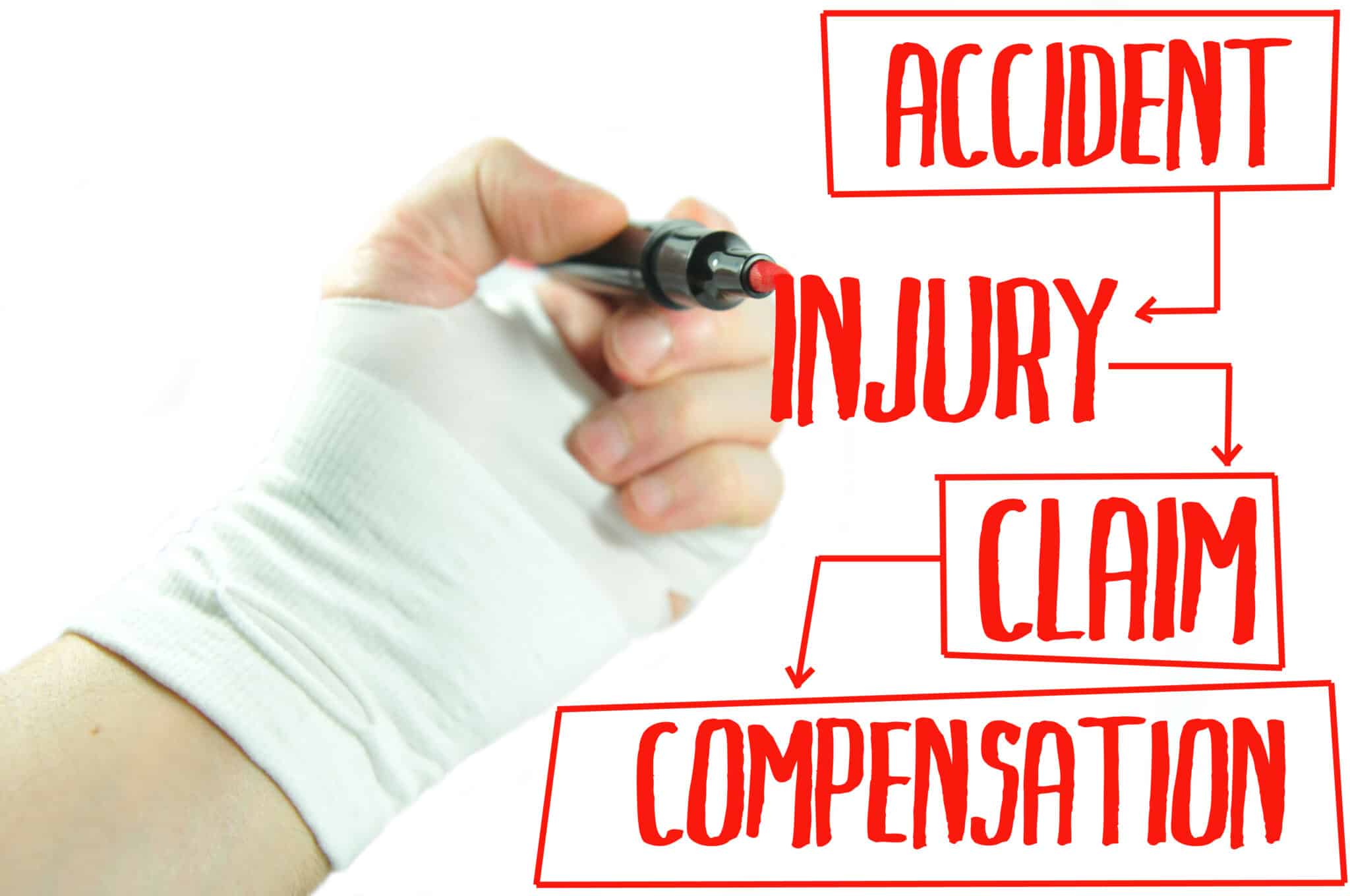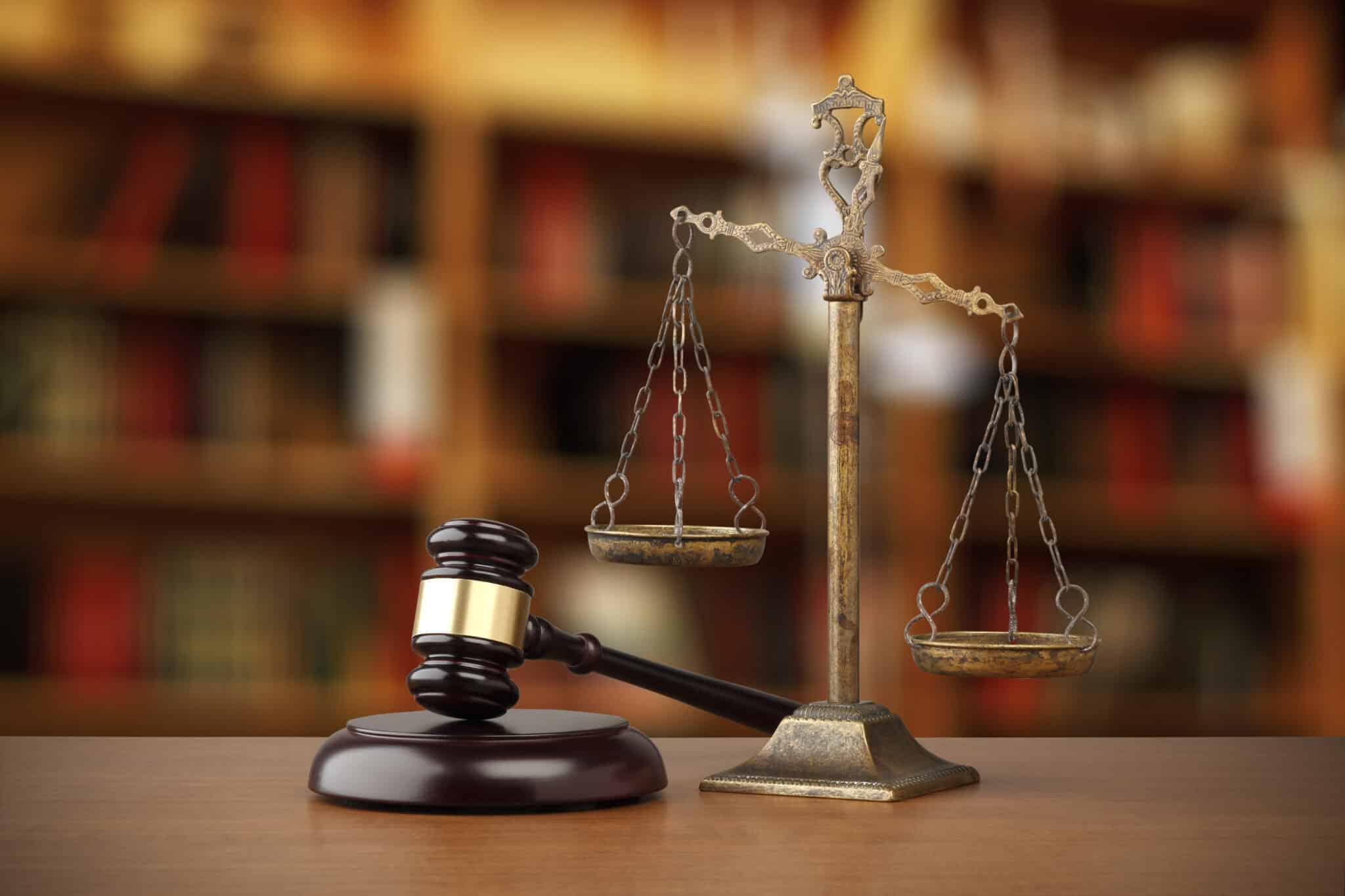Who’s At Fault in a Georgia Pedestrian Accident?
Understanding Fault and Proving Liability
Between 2018 and 2022, Georgia was the ninth (9th) most deadly state for people walking. Georgia averaged 2.66 deaths per 100,000 people per year. Given this grim statistic, is it important to understand how Georgia law determines who is at fault after being struck by a vehicle while walking.
There are four main situations where a pedestrian can be injured by a motor vehicle:
1) while crossing a street inside a crosswalk;
2) while crossing a street outside of a crosswalk;
3) while walking on a sidewalk or along the edge of a roadway; and
4) while walking through a parking lot.
It is important to address each category separately as the law is different for each.
What is Georgia’s Law for Pedestrian Accidents Occurring Inside a Crosswalk?
A driver must stop for a person crossing in a crosswalk if the pedestrian is within the lane the driver is driving or immediately approaching that lane. Further, a pedestrian must not enter the crosswalk when an approaching vehicle is so close that the vehicle would be unable to stop in time. Pedestrian accidents that occur in a crosswalk are governed by O.C.G.A § 40-6-91, which states that the driver of a vehicle must stop and yield to any pedestrian who is walking on the half of the roadway on which the driver is driving or turning onto. Further, the driver must stop if the pedestrian is approaching the lane in which the driver is driving. Finally, the statute makes it illegal for a pedestrian to dart into a crosswalk in front of an approaching vehicle.
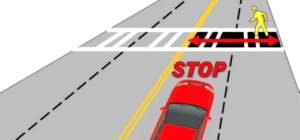
STOP for a pedestrian in a crosswalk when the pedestrian is anywhere on your side of the road. Side of the road means all lanes of traffic going in one direction.
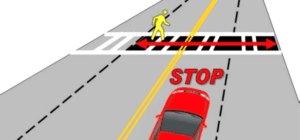
STOP for a pedestrian in a crosswalk when the pedestrian is approaching and in the lane next to your side of the road.
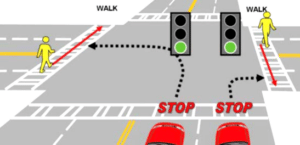
Before turning right or left on a green light, STOP for pedestrians. They have the right of way.
O.C.G.A § 40-6-91 attempts to place responsibility on both the driver and the pedestrian to act responsibly when approaching an intersection. In short, the law says that a driver should stop for any pedestrian already in the roadway or approaching the driver’s lane of travel, while a pedestrian should not run out in front of an approaching vehicle.
O.C.G.A § 40-6-22 clarifies when pedestrians can enter a crosswalk at intersections with special pedestrian-control signals. We have all seen the signals at crosswalks that say “WALK’ and “DON’T WALK”, but there has been some confusion over what the flashing “DON’T WALK” means. Obviously, “WALK” means that pedestrians can enter the crosswalk. O.C.G.A § 40-6-22 requires that no pedestrian enter a cross walk when a signal exhibits either a solid or flashing “DON’T WALK.” The flashing “DON’T WALK” means that any pedestrian already in the crosswalk should continue to cross to the sidewalk or safety island, but no other pedestrian should enter the crosswalk until the next “WALK” signal.
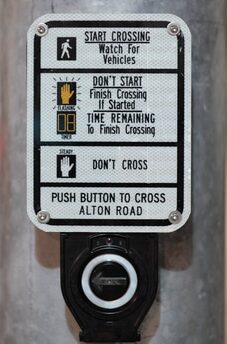
What is Georgia’s Law for Pedestrian Accidents Occurring Outside of a Crosswalk?
The analysis of a crash occurring outside a crosswalk is governed by O.C.G.A § 40-6-92. This section is a little more complicated than the previous code section. First, § 40-6-92 (a) requires that when a pedestrian is crossing a road somewhere other than at a crosswalk, he must yield the right of way to all vehicles upon the roadway unless he has already entered the roadway. This is similar to the crosswalk code section in that a pedestrian cannot dart into traffic in front of a vehicle that has no time to avoid striking the pedestrian. § 40-6-92 (b) states that if a pedestrian tunnel or overhead bridge is present, and the pedestrian chooses to not use it when crossing the road, then he must yield the right of way to all vehicles present on the roadway and only cross once the road is clear. Finally, § 40-6-92 (c) requires that anytime a person intends to cross a road between two traffic-control signals (red lights), that person must utilize one of the crosswalks provided at the red light. The diagram below illustrates the three different scenarios that can arise when crossing outside of a crosswalk.
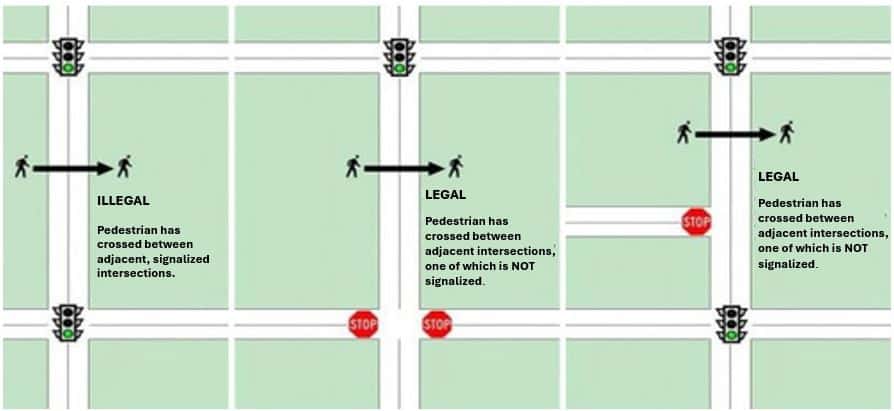
There is a common misconception that it is considered “jaywalking” whenever a pedestrian crosses a road outside of a crosswalk. However, as O.C.G.A § 40-6-92 and diagram above point out, this is not the case. If a pedestrian crosses between two red lights without using a crosswalk, he is violating the law. Yet, if he crosses a road anywhere else, then he is not violating the law. Nevertheless, all pedestrians must still use caution to not enter the roadway in an unsafe manner or dart out in front of oncoming traffic. Once a pedestrian has entered the roadway and established himself within the lane of travel all oncoming vehicles on his side of the road must yield to the pedestrian.
What is Georgia’s Law for Pedestrian Accidents Occurring While Walking on a Sidewalk or Along the Side of a road?
If a pedestrian is struck by a vehicle while walking on a sidewalk (not crossing a road), then the driver of the vehicle is almost certainly at fault. A driver who leaves the roadway and strikes a pedestrian would likely be found in violation of O.C.G.A. §40-6-48, which requires all vehicles to be driven within a single lane. This violation is commonly known as Failure to Maintain Lane. The driver would also likely be a violation of a litany of other statutes related to keeping proper control of the vehicle.
However, there are more rules involved for pedestrians walking along the side of a roadway and not using a sidewalk. First, O.C.G.A. §40-6-96 requires all pedestrian to use a sidewalk if one is present. When there is not a sidewalk present, but there is a shoulder available, then Georgia law requires all pedestrians to walk along the shoulder of the road as close to the outside edge as possible. Finally, when there is no shoulder or sidewalk available, pedestrians must walk as close as possible to the outside edge of the roadway and, on any two-lane roads, they must always walk on the left-hand side towards the flow of traffic. The statute also requires that all pedestrians walking along the roadway yield the right of way to all vehicles driving on the roadway.
What is Georgia’s Law for Pedestrian Accidents Occurring in a Parking Lot?
There are no specific laws in Georgia that apply to a pedestrian crash that occurs in a parking lot. Parking lots are private property; therefore, Georgia’s traffic laws do not apply. As a result, Georgia’s ordinary negligence laws apply in determining fault in these types of cases. Generally speaking, drivers should expect that people will be walking in a parking lot; thus, all drivers should exercise caution and lookout for pedestrians while navigating a parking lot. If a driver fails to keep a proper lookout and strikes a pedestrian, then he is likely at fault for the crash. However, should a pedestrian dart into the path of a vehicle, that pedestrian would likely be found to be at fault.
Who’s At Fault When a Pedestrian Is Hit By a Car?
In most cases, the person who violates a statute is at fault for a crash. We have discussed the law for each common type of pedestrian crash. In each case, Georgia law provides rules for both pedestrians and drivers. The person who violates a Georgia statute is usually found to be at fault under the doctrine of negligence per se. This means that when a person violates a statute, they are automatically considered to have breached their duty of care and are therefore negligent as a matter of law. However, Georgia’s ordinary negligence law also applies, which attempts to weigh how a reasonable person would act under similar circumstances to determine who acted unreasonably and was, thus, at fault for the crash.
When a pedestrian crash occurs, it is vital to preserve as much evidence from the crash scene as possible. This evidence could include statements from witnesses; photographs of damage to the vehicles or surrounding property; photographs of skid marks on the road; or video of the crash from nearby surveillance cameras. This information is necessary to determine which statutory framework applies to the crash and to help paint a picture of how the crash occurred for attorneys, insurance companies, and future jurors. Many times, the parties involved will have varying accounts as to whether the pedestrian darted into traffic or exactly what lane the pedestrian was in when the impact occurred. Evidence from the scene is the only way to provide a definitive answer as to what occurred. Without this information, the case becomes a word versus word situation that makes it virtually impossible for anyone to determine liability.
A Real-World Example of a Pedestrian Accident Claim
I was contacted by the wife of a man who was struck by a vehicle while crossing a crosswalk at the exit of a gas station. There was a question as to whether the man had stepped into the crosswalk in front of the moving vehicle or whether the man was established in the crosswalk and the vehicle failed to stop. I immediately went to the scene to see what evidence could be preserved. Upon arrival there were no skid marks present due to the low-speed nature of the crash, and I had been told there were no witnesses. However, as I walked the area, I noticed that the gas station’s surveillance camera was pointed directly at the intersection. I went inside and the clerk was nice enough to let me view the footage.
Obviously, video footage of the crash is the best type of evidence in this situation. The footage showed the car stopped at the crosswalk as the man approached, appearing to yield to the on-coming pedestrian. Then, after the man was halfway thought the crosswalk, the car accelerated forward striking him and knocking him to the ground. It was clear that the driver had stopped at the intersection, became distracted by something else, and never looked forward before accelerating. Without the video footage it would have been impossible to determine the truth as to what happened because the driver claimed the man stepped into the intersection unexpectedly and she had no time to stop and, due to the nature of his injuries, my client never had the chance to tell his side of the story. The footage proved to be the answer as to who was at fault.
For those injured in a pedestrian accident, Georgia law provides a means to seek compensation, but a thorough investigation and strong evidence are essential to proving the case. Victims need the support of qualified and experienced legal counsel on their side. The experienced personal injury attorneys at Williams Elleby Howard & Easter work hard to get victims the compensation they deserve.
Located in Kennesaw, Georgia, Williams Elleby Howard & Easter serves clients throughout the State of Georgia. If you or a loved one has suffered an injury in a pedestrian crash, the attorneys at Williams, Elleby, Howard, & Easter can help you understand what possible claims you may have and work to get you the compensation you deserve. To schedule a free consultation, call 404-389-1035 today.
